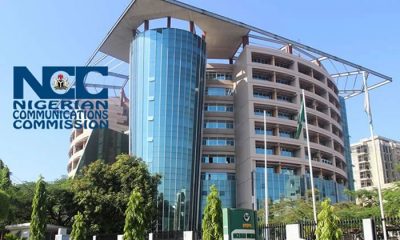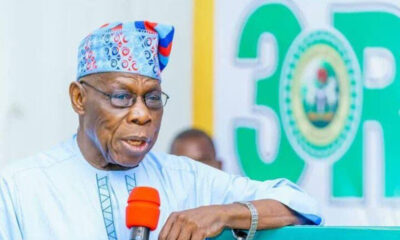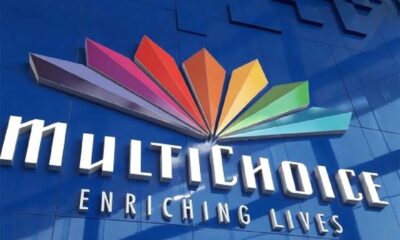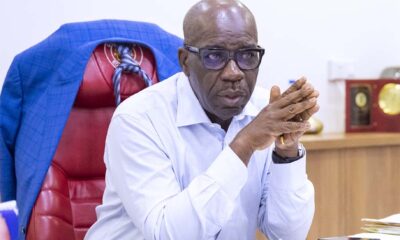Business
USSD: Banks owe telcos N80bn, subscribers face disconnection threat

Banks’ accumulated debt from the Unstructured Supplementary Service Data (USSD) owed telecommunication companies (telcos) has risen to N80 billion.
Chairman, Association of Licenced Telecom Operators of Nigeria (ATCON), Mr Gbenga Adebayo, who revealed the figure in a telephone interview with THISDAY, said the amount was as of November this year.
He said it would soon come to a point where the telcos would be forced to withdraw the USSD services, since the banks had refused to pay.
“The debt is rising and has not been paid by the banks. As of November 2022, the accumulated debt rose to over N80 billion. When we started the argument in 2019, it was N32 billion, and they continue to claim that they are not owing, but our investigation shows that they are still using the USSD platform to offer banking services to their customers, yet they are not remitting to telecom operators who own the USSD platform,” Adebayo said.
According to him, the issue has to be addressed because they cannot wish it away.
READ ALSO:
- Car crushes seven, injures 29 during Calabar carnival
- Dump Atiku, end your political career, Dino Melaye warns Wike, allies
- 20 killed in Lagos-Ibadan road, Mokwa, Otukpo accidents
“Time will soon come when we will be constrained to withdraw the service and many bank customers that depend on the USSD service will suffer for it and it will affect the economy. It is hounorable to pay their debts and they have to pay,” Adebayo warned.
“We are warning that the banks’ action in refusing to pay their debt, will have negative consequence on the CBN’s Cashless Economy agenda for the country. It will be a threat to cashless economy. So CBN should advise Money Deposit Banks to up the accumulated debts,” Adebayo further said.
USSD is a critical channel for delivering financial services, particularly for the underserved and the financially excluded, offered by telecoms operators to banks.
Banks use different USSD codes to support transfer of money through the use of mobile devices, without internet data connectivity.
Deposit money banks and the telecom operators had been at loggerheads over the non-remittance to telcos for all USSD fees charged by banks since 2019, accumulating to N42 billion as at March 2021 and N80 billion as at November 2022.
The Minster of Communications and Digital Economy, Dr. Isa Ibrahim Pantami, had written to CBN Governor, Mr. Godwin Emefiele, highlighting the impending danger of the disagreement and stressing the need for banks to pay the accumulated debt or risk suspension of the USSD code.
The letter dated March 3, 2021, and addressed to the CBN Governor, Mr. Godwin Emefiele, reminded him of the USSD pricing issued by NCC on July 23, 2019, as well as the subsequent amendment on July 24, 2020.
The banks, telcos, CBN and the Nigerian Communications Commission (NCC) respectively have had several meetings in the past to resolve the issue but the banks remained adamant and have refused to settle the rising debt.
Business
Just in: Governors reject VAT increase, back passing of Tax Reform Bills
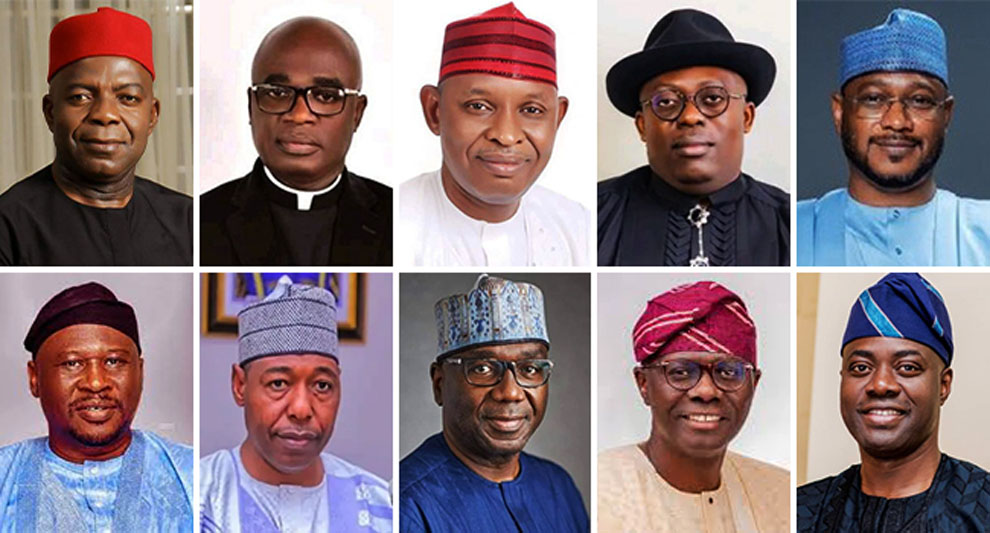
Just in: Governors reject VAT increase, back passing of Tax Reform Bills
The Nigeria Governors’ Forum (NGF) has rejected the move to increase Value Added Tax (VAT) and proposed an “equitable” sharing formula for the collected revenue.
The governors however expressed support for the ongoing legislative process of the Tax Reform Bills.
These were the outcomes of a meeting between the NGF and the Presidential Tax Reform Committee, convened on Thursday to discuss critical national issues, including the reform of Nigeria’s fiscal policies and tax system.
A statement signed by the Chairman of the Forum and Governor of Kwara State, Abdulrahman AbdulRazaq said, “We, members of the Nigeria Governors’ Forum (NGF) and presidential tax reform committee, convened on the 16th of January 2025 to deliberate on critical national issues, including the reform of Nigeria’s fiscal policies and tax system, and arrived at the following resolutions:
“1. The Forum reiterated its strong support for the comprehensive reform of Nigeria’s archaic tax laws. Members acknowledged the importance of modernizing the tax system to enhance fiscal stability and align with global best practices.
“2. The forum endorsed a revised Value Added Tax (VAT) sharing formula to ensure equitable distribution of resources: 50% based on equality, 30% based on derivation, and 20% based on population.
“3. Members agreed that there should be no increase in the VAT rate or reduction in Corporate Income Tax (CIT) at this time, to maintain economic stability.
“The forum advocated the continued exemption of essential goods and agricultural produce from VAT to safeguard the welfare of citizens and promote agricultural productivity.
“4. The meeting recommended that there should be no terminal clause for TETFUND, NASENI, and NITDA in the sharing of development levies in the bills.
“5. The meeting supports the continuation of the legislative process at the National Assembly that will culminate in the eventual passage of the Tax Reform Bills.”
Business
FG proposed 30-60% increase in telecom tariff – Minister

FG proposed 30-60% increase in telecom tariff – Minister
The federal government has proposed a 30-60% increase in telecom tariffs to sustain the critical telecommunications sector while ensuring affordability for Nigerians.
Rejecting demands by operators for a 100 per cent hike, Dr. Tijani explained that the government was considering a more moderate increase to strike a balance between affordability for consumers and the sustainability and continued growth of the sector.
He said: “The telecommunications sector contributes over 16 per cent to our GDP, employs thousands of Nigerians, and is essential to the nation’s digital economy. However, it is crucial to ensure that services remain accessible while maintaining the sector’s viability.”
READ ALSO:
- Cancer: US govt bans red dye No. 3 from food, drinks, drugs
- Obasa: Lagos group compiles list of ex-Speaker’s assets
- 70 million Nigerians to get N75,000 cash transfer this year – FG
Announcing key updates from the ministry, Dr. Tijani emphasized that the tariff review would prioritize consumer interests and sector sustainability.
He said the Nigerian Communications Commission, NCC, was overseeing the process, with recommendations based on data-driven analysis.
On rural connectivity investments, he said: “To address connectivity challenges in underserved areas, the government is deploying 90,000 kilometers of fiber-optic networks and building telecom towers in remote regions through Special Purpose Vehicles, SPVs.”
Dr. Tijani also addressed Nigeria’s leadership in global telecommunications infrastructure resilience, citing recent efforts to manage submarine cable disruptions.
He reiterated the government’s commitment to harmonizing taxes and declaring telecom infrastructure as critical national assets.
Assuring Nigerians of improved service delivery, the minister said operators would be held accountable for disruptions.
Business
Nigeria’s inflation rises to 34.8% due to high December demand

Nigeria’s inflation rises to 34.8% due to high December demand
Nigeria’s inflation rate rose to 34.8 per cent in December from 34.6 per cent in November, the fourth consecutive increase.
According to the latest report by the National Bureau of Statistics (NBS), the increase was due to December festive period’s rise in demand for goods and services.
The details are contained in the NBS Consumer Price Index report for December 2024 obtained by newstrends on Wednesday.
The NBS said, “In December 2024, the headline inflation rate was 34.80% relative to the November 2024 headline inflation rate of 34.60%.
“Looking at the movement, the December 2024 headline inflation rate showed a marginal increase of 0.20% compared to the November 2024 Headline inflation rate.
“This was due to December festive period increases in demand for goods and services.
“On a year-on-year basis, the headline inflation rate was 5.87% higher than the rate recorded in December 2023 (28.92%).
“This shows that the headline inflation rate (year-on-year basis) increased in December 2024 compared to the same month in the preceding year (i.e. December 2023).
“On the contrary, the month-on-month basis, the headline inflation rate in December 2024 was 2.44%, which was 0.20% lower than the rate recorded in November 2024 (2.64%).
“This means that in December 2024, the rate of increase in the average price level is slightly lower than the rate of increase in the average price level in November 2024.”
-

 Education2 days ago
Education2 days agoJAMB faults claims of ‘humongous spending’ on meals, fumigation, others in 2024
-
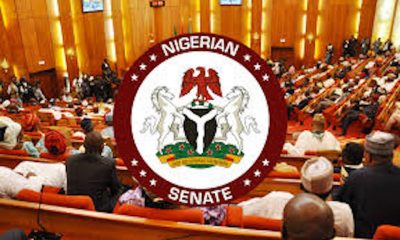
 metro3 days ago
metro3 days agoSenate committee concludes deliberations on tax reform bills
-

 metro2 days ago
metro2 days agoWhy I have no regrets killing Salome Adaidu – Timileyin Ajayi
-

 International3 days ago
International3 days agoWildfires: Hollywood actress Dalyce Curry’s body found burnt in Los Angeles home
-
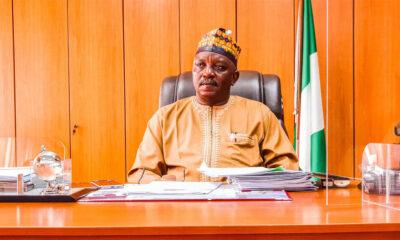
 metro3 days ago
metro3 days agoEFCC arranges four more witnesses against ex-Power Minister Mamman in N33.8bn fraud trial
-
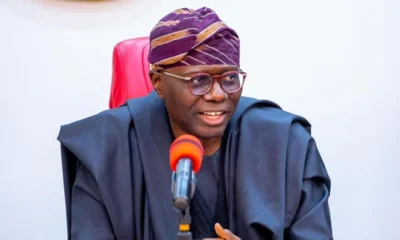
 metro2 days ago
metro2 days agoSanwo-Olu speaks on speculated role in Obasa’s impeachment
-

 metro18 hours ago
metro18 hours agoObasa: Lagos group compiles list of ex-Speaker’s assets
-

 metro11 hours ago
metro11 hours agoAlaafin: Makinde can’t rely on Ifa, says Prince Gbadegesin, gives governor 30-day ultimatum

